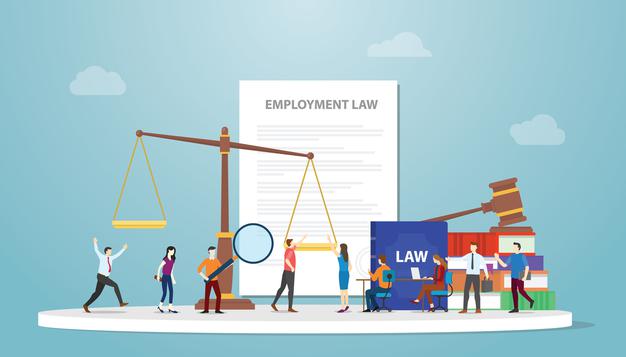Top 10 Employment Laws Your Employer Doesn’t Want You to Know About
In the United States, every employee has and enjoys certain basic rights and benefits that protect him or her from his or her employer. However, few are aware of them and know how to enforce their rights with the employment law that protect them.
Know your employment law and do not allow your employers to abuse your work. Here we explain it easily and in detail.
4 basic employee rights you should know
Accidents at work
No matter the type of work, your employer is responsible that your job does not represent a risk to your health or life. Workers fearing the loss of employment do not report or denounce the accident and employers knowing the cost they represent also let it pass.
Having attention and benefits in case you suffer an accident at work is part of your labor rights. If this is your case you should:
- Notify your supervisor and personnel department of your accident, illness, or injury.
- See a doctor and receive immediate attention. The doctor must be selected by your employer.
- Have medical care paid for by your employer’s insurance company.
Unemployment Benefits
If you are unemployed, you are entitled to an amount after you lose your job. Because you have to cover basic living and food expenses when you lose your job, you may even be eligible for unemployment insurance depending on the reasons for the job loss.
In the case of the federally unemployed, there is also compensation, as long as you are not involved in a case of misconduct, false testimony, or voluntary resignation. Payments to the federally unemployed are handled by various federal agencies on a case-by-case basis.
You should contact a state workforce agency for information about your eligibility for workers’ compensation.
Disability
Fortunately, in all U.S. states, the barriers to a suitable work environment for people with disabilities have been greatly reduced, such as parking spaces, spaces for independent mobility, and accommodations for dignified work. However, we cannot be naïve and ignore whether there is employment discrimination based on disability.
The ADA, passed in 1990, prohibits discrimination against people with disabilities in employment, public services, transportation, and telecommunications. It also covers private employers with 15 or more employees. These standards also apply to employees in the federal sector.
The ADA laws apply to people with disabilities with:
- Disabling conditions that are mentally or physically limiting of major life activities.
- History of the condition.
- Visibly limiting conditions that represent an obvious impairment of activities. Example: a deformity.
Age discrimination
Although over the years the experience acquired is very valuable, it is not uncommon for a company to discriminate against its employees because of their age. Some workers may be refused promotion, have little chance of being hired, and even be treated unfairly.
For these cases, there is the ADEA law that protects citizens 40 years and older from discrimination based on their age. All measures protect both the worker and the one who is looking for a job.
Other 6 labor rights that you should know and not forget
Unfair dismissal is not illegal
Although it may seem unfair at times, employers have the right to fire you without further justification, the law does not require detailed explanations about the reason for dismissal.
However, you can report an unfair dismissal only in case of discrimination based on your sex, race, color, age, religion, sexual orientation, or disability. You may also assert your employment law by reporting a dismissal for attempting to exercise your legal rights or for reporting your employer to the authorities.
Right to access your personnel file
Private employees have the right to see and possess a copy of their personnel file, to be aware of the information that the company keeps about them. The employer must provide you with the document and a copy once a request is made in advance for a reasonable time.
If you do not agree with any of the information in this file, some laws support it so you can modify it, and you can even add your own documents if you think it is necessary.
It is not legal to lose vacation time
If you are fired or quit, you can still take any accrued vacation you had up to that point along with your final payment. Likewise, even if your employer does not allow you to take a vacation after you finish a certain job, you have accrued benefits. However, your employer may determine a reasonable amount of vacation time based on your accrued time.
12 weeks of unpaid leave for medical reasons
You are entitled to 12 weeks of unpaid leave from work in the event of a family emergency, medical emergency, pregnancy, childbirth, or if a family member needs your assistance due to illness. You should be aware that you are entitled to this benefit if you have been working at your company for at least one year.
You cannot be docked pay for a mistake.
It is illegal for your employer to deduct money from your paycheck when you make an accidental or frequent mistake in the workplace, even if it represents a loss of money. The only way the deduction is legal is if your employer can prove that the error was caused by dishonesty, misconduct, intent, or negligence on the part of the employee.
You can still be an employee even if you are designated as an “independent contractor”.
Often this type of designation is complicated and the employee is not familiar with how it works. Whether you are called an “employee” or an “independent contractor” depends a lot on how you perform your job.
The employee has unemployment insurance, medical benefits, and health and safety protection. The contractor has none of these benefits.
Top 10 Employment Laws Your Employer Doesn’t Want You to Know About
